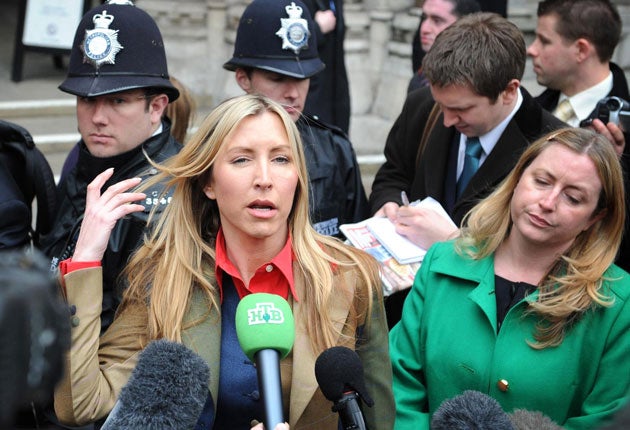Leading lawyers call for quicker 'no-fault' divorces
Three in four professionals say current system in which one person must be to blame is driving couples into the courts

Britain's medieval fault-based divorce system must be reformed so that couples are free to end their marriage without having to blame each other for the break-up, an overwhelming majority of lawyers have told the Government.
The call for a change to a law which has its origins in the matrimonial disputes of Henry VIII is supported by senior judges who share concerns that the rules create an acrimonious divorce culture.
Three out of four of Britain's top 100 divorce lawyers said they want ministers to revisit the controversial subject of "no fault" divorces proposed by John Major's government in 1996.
But despite growing evidence that a fault basis for divorce drives couples to the courts to settle their differences, neither Labour nor the Conservatives now support a change in the law.
Lawyers told the consumer law website TakeLegalAdvice.com that families would suffer far less during the separation if the husband and wife did not have to cite unreasonable behaviour or one of the other grounds for a quick divorce.
In the run-up to the general election, David Cameron's Tories are looking to strengthen the institution of marriage rather than make it easier to divorce. Yesterday Labour said it no plans to make divorces more amicable. Yet 10 years ago both parties were falling over each other to come up with the best policy to end fault-based divorces.
Mr Major's proposals to bring in a law which would achieve this result were enthusiastically taken up by Tony Blair in 1997 and then abandoned in 2001 after a media backlash.
Suzanne Kingston, head of family at Dawsons law firm, told TakeLegalAdvice: "England and Wales lag behind many other jurisdictions in not having a mutual consent option or no fault approach which does not involve a substantial waiting period, and it is time it came into line with many other jurisdictions."
In the last few years, a number of public divorce battles have shown how the law has helped to stoke the fires of acrimony in splits involving the rich and famous.
Sir Paul McCartney filed for divorce in July 2006 in the hope of a quick settlement with his estranged wife Heather Mills. Both wanted an amicable split, for the sake of their then two-year-old daughter, Beatrice. But Sir Paul's petition for the break-up of the four-year marriage is understood to have cited his ex-wife's "unreasonable behaviour". Similar grounds have been cited in the divorces of Madonna and Guy Ritchie, and Gary Lineker and his former wife Michele.
The architects of Britain's first divorce laws, which influence the rules today, designed the legislation to reflect society's disapproval of a breakdown in a marriage which often had a negative social consequence for women. Many family law judges believe this to be flawed and feel it undermines the institution of marriage.Ms Kingston said the reason for a divorce is invariably irrelevant to the real issues which need to be addressed, and the lack of co-operation between the couple can lead to traumatic, lengthy and costly proceedings to resolve property and financial matters.
"A civilised society deserves a civilised divorce process which encourages people to look forward rather than what happened in the past. People divorce for many different reasons, not because of the nature of the divorce process itself." She added that children were often the first to suffer in an acrimonious divorce.
TakeLegalAdvice said that 2009 saw more children feeling the brunt of the unhappy home, with 66 per cent of divorce lawyers reporting an increase in child-related issues including a rise in international abductions. Couples who want to divorce in less than two years will have to continue to prove adultery, unreasonable behaviour or one of the other three grounds.
"Anyone not wanting to wait two years or more for a divorce has to prove 'unreasonable behaviour' or adultery on the part of their husband and wife. Although for some couples this is appropriate, for many it simply adds animosity and more heartache to an already distressing process," said Nicholas Longford, chair of Resolution, which represents over 5,500 family lawyers in England and Wales.
Subscribe to Independent Premium to bookmark this article
Want to bookmark your favourite articles and stories to read or reference later? Start your Independent Premium subscription today.

Join our commenting forum
Join thought-provoking conversations, follow other Independent readers and see their replies